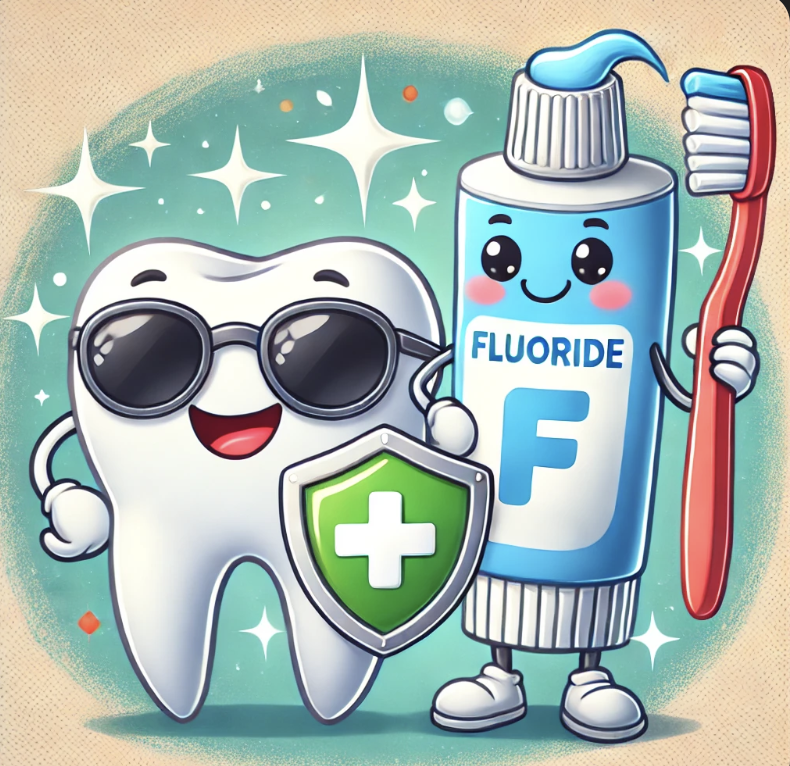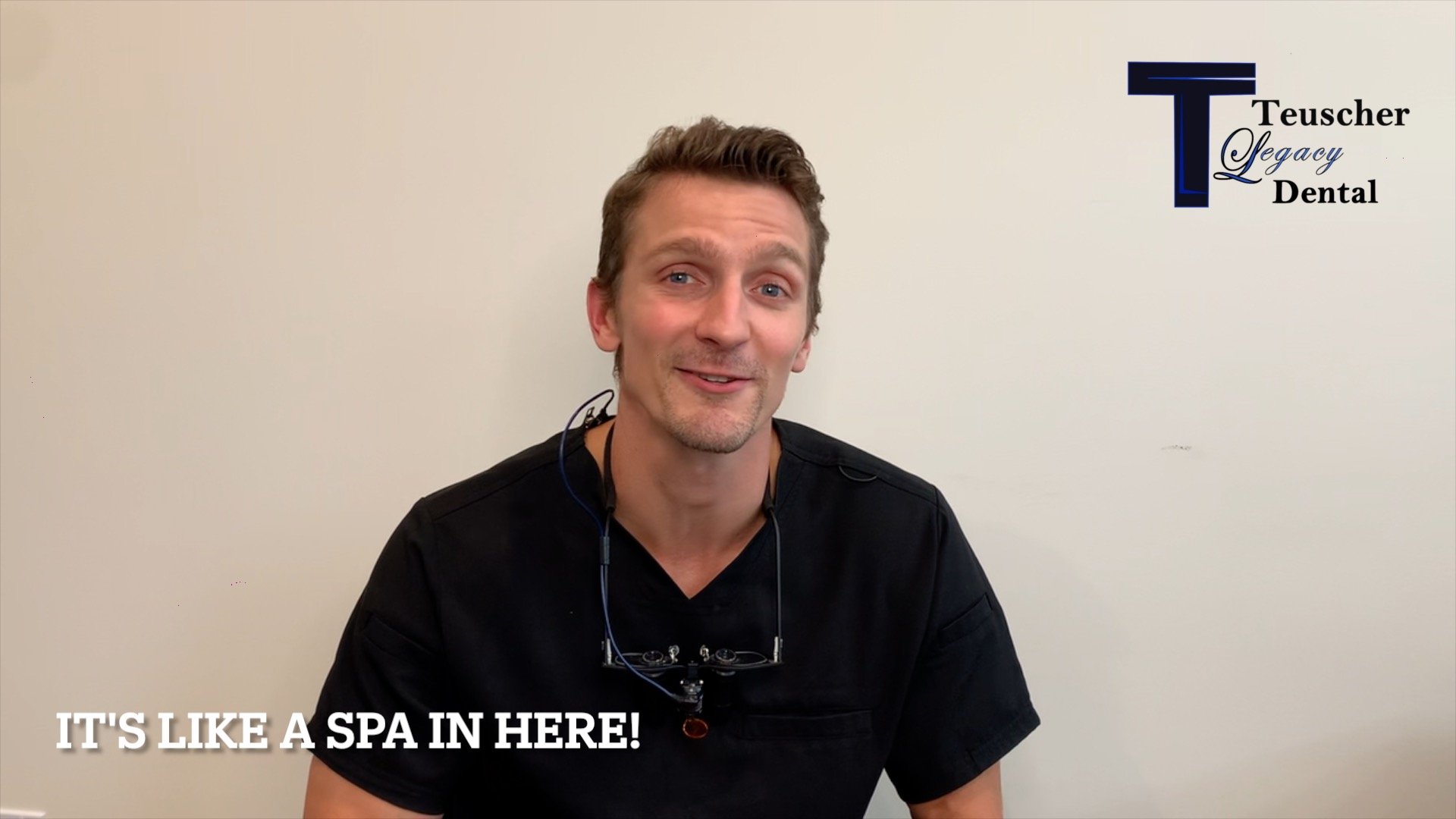
Blog
Useful and free info on dental implants, cosmetic dentistry, family dentistry, and more. All posts written by our doctors, not AI or some outside marketing firm. If you are in Campton Hills, St Charles, Geneva, Batavia, Elburn, Elgin, or anywhere in Kane County, these posts will be helpful!
Do Wisdom Teeth Really Need to be Extracted?
Are you wondering whether wisdom teeth are really a problem? Or does your child really need them removed? Below are some things to consider and the risks you should know about.
Why Wisdom Teeth Can Be a Problem
While some wisdom teeth grow in without causing issues, others create complications that make you wonder why people have them in the first place. Here are a few common problems that can arise:
Infection: When wisdom teeth only partially emerge, they leave behind gum pockets that trap bacteria, leading to painful infections like pericoronitis. A study in the International Journal of Environmental Research and Public Health found that pericoronitis is one of the most common complications of retained wisdom teeth.
Gum Disease: Wisdom teeth are often difficult to clean, making them a breeding ground for bacteria that contribute to gum disease. Research in the Journal of Clinical Periodontology shows that infections around wisdom teeth can increase the risk of periodontal disease in neighboring teeth.
Tooth Decay: Because wisdom teeth are so far back in the mouth, they can be tricky to reach with a toothbrush or floss. According to the Journal of the American Dental Association, wisdom teeth are significantly more prone to cavities than other molars.
Crowding & Shifting: Even if your wisdom teeth aren’t painful, they can push against your other teeth, potentially undoing years of orthodontic work.
Cysts & Jaw Damage: Impacted wisdom teeth can sometimes form cysts, which may damage the surrounding bone and even require more extensive treatment.
Because younger patients heal faster and experience fewer complications, wisdom teeth are often removed in the late teens or early 20s.
Why don’t wisdom teeth fit in our mouth?
You may be asking why our ancestors’ wisdom teeth fit in their mouth, but ours don’t. The book “Jaws” has a very interesting anthropological take on the subject. It closely aligns with our thinking at Teuscher Legacy Dental, and is highly recommended reading from Dr Andrew Huberman, Jared Diamond, Robert Sapolsky, and others.
Why Choose Teuscher Legacy Dental for Wisdom Teeth Removal?
At Teuscher Legacy Dental, we make the wisdom teeth removal process as seamless and stress-free as possible. Here’s what sets us apart:
Patient-Centered Comfort: From thorough consultations to post-op care, we prioritize your comfort at every step.
Personalized Attention: Because we know your dental history, we can make the best recommendations for your individual case and offer continuity of care.
Convenient In-Office Extractions: No need to travel to a specialist— Dr Brayden Teuscher performs most wisdom teeth removals right here in our St. Charles office.
Affordable Care: Our fees are often lower than those of oral surgeons, without sacrificing quality.
Sedation Options: We offer safe, effective oral sedation to help ease any anxiety you may have during the procedure.
When Should You See an Oral Surgeon?
While most wisdom teeth extractions can be performed in our office, there are certain cases where we may recommend an oral surgeon:
If IV sedation is necessary for a deeper level of anesthesia
If the teeth are severely impacted or in a particularly difficult position
If there is a high risk of nerve involvement or other surgical complexities
If we determine that an oral surgeon is the best option for you, we’ll guide you through the referral process and ensure you receive the best care possible.
Wisdom from Master Yoda
“Wisdom teeth- misnamed they are. Pain they bring. Wisdom, they do not!”
What to Expect When Having Wisdom Teeth Removed
We understand that any dental procedure can feel overwhelming, but we’ll be with you every step of the way. Here’s how the process works:
Step 1: Consultation & X-Rays
During your initial visit, we’ll take X-rays to assess the position of your wisdom teeth and determine whether removal is the best course of action. We’ll also discuss your sedation options to ensure a smooth, comfortable experience.
Step 2: The Procedure
On the day of your extraction, you’ll be in good hands. We’ll carefully remove the teeth while keeping you as comfortable as possible. Most procedures take less than an hour.
Step 3: Recovery & Healing
Every patient is different, but most people recover within a few days. We’ll provide detailed aftercare instructions, including tips on managing swelling, what to eat, and how to care for the extraction sites. We’re always just a phone call or text away if you have any concerns.
Are Your Wisdom Teeth Causing You Pain?
If you’re experiencing discomfort, swelling, or just want to know whether your wisdom teeth should stay or go, we’re here to help. At Teuscher Legacy Dental, we’ve helped countless patients in St. Charles, Elburn, Geneva, and the surrounding areas navigate wisdom teeth removal with confidence. Schedule a consultation today, and let’s make a plan that’s right for you!
📍 Location: 40W131 Campton Crossings Drive, St. Charles, IL 60175
📞 Phone: 630-762-0000
🌐 Website: TeuscherDental.com
Sources:
A. Alqahtani et al., "Pericoronitis and Its Management in Young Adults," International Journal of Environmental Research and Public Health, 2021.
S. D. White & M. L. Pharoah, "Oral Health Implications of Wisdom Teeth," Journal of Clinical Periodontology, 2012.
D. L. Weyant, & A. L. Jay, “Impacted Wisdom Teeth and Caries Risk: A Review,” Journal of the American Dental Association, 2013.
Fluoride and Your Family's Health: A Father’s Reflections
I’m a dentist, and my kids don’t use fluoride toothpaste.
Is that because I think fluoride is ineffective? No! In fact, it is perhaps the easiest, most cost effective prevention strategy for tooth decay.
So why don’t my kids use it? The answer is not as black and white as many assume. There is a lot of science to support fluoride use. But there’s also a strong rationale against. Below are some thoughts for and against fluoride, and how I as a dentist and father recommend you think about it for your family. I’ve also listed questions you should ask yourself to decide whether fluoride application is best for your family!
*note: I am not trying to choose any political side here. I am intentionally not commenting on matters of public policy. This is about YOU and thinking through what’s best for YOUR FAMILY.*
In support of fluoride:
Fluoride is a great way to strengthen teeth and prevent tooth decay. Numerous studies show this. But, as with any health topic, there's more to consider. Let’s explore the health implications of fluoride use both topically (through toothpaste or treatments applied to teeth) and systemically (through drinking water or supplements) so you can make an informed choice about what’s best for your family’s dental care.
Benefits of Topical Fluoride
Topical just means something that is set on the teeth. This is found in toothpastes, mouth rinses, and professional treatments. It directly strengthens the outer enamel of teeth, and as Dr Andrew Huberman and I have said, can even reverse early stages of decay. One particular study showed fluoride in toothpaste can reduce cavities by 26% (1).
The CDC says tooth decay is the most common disease of childhood in the US, so fluoride as a cavity reduction strategy is a huge deal! The CDC advises that when children brush daily with a fluoride toothpaste or get topical application at their dental hygiene visits, they’re getting a powerful shield against cavities (2).
Benefits of Ingested Fluoride (Fluoridated tap water)
When fluoride is ingested, through drinking water or supplements, it enters the bloodstream and becomes part of the developing teeth under the gums. This process can make teeth more resistant to decay even before they appear. This is particularly helpful in remote areas where fluoride sources or professional dental care may be more limited (3). Teeth aside, there aren’t other known benefits to ingesting fluoride.
Fluoride Saves Money
Research highlights that for every dollar spent on fluoride in drinking water, families save on future dental care costs due to reduced need for treatments (4). Actually, this exact same argument shows that getting regular dental cleanings saves money on healthcare costs. For families needing an easy, inexpensive, and straightforward way of cavity prevention, fluoride in drinking water could be a convenient, hands-off approach.
Fluoride Risks
Considerations of Ingested Fluoride
One concern over fluoride ingestion from tap water is that people who need to drink more water may be over-exposed to fluoride (5). While ingested fluoride does have established dental benefit, at high levels it is clearly toxic. Mild effects of too much fluoride consumption are dental fluorosis and some bone density changes (6,7,8,9). The bone density changes can be dangerous for some individuals. And more concerningly, very high levels of fluoride consumption have been linked to lower IQ, especially when consumed during pregnancy (10,11).
Note that these studies refer to ingesting fluoride (i.e., eating fluoride). These studies are NOT talking about toothpaste or topical fluoride application at a dental visit.
Considerations of Fluoride Toothpastes
While fluoride toothpaste is safe when used correctly, it can be tricky for young kids. Any parent of young kids knows they will eat the toothpaste! The amount they are ingesting in that case is likely so small as to not be of any concern, but for that reason, the American Dental Association (ADA) suggests a pea-sized amount of toothpaste for children ages 3-6, while those under 3 should use a “tiny smear”. This way, if they eat it, they wont actually take in much fluoride.
Eventually kids are big enough to know not to eat the toothpaste. They may still accidentally swallow some after brushing, but the fluoride ingestion will be negligible. With appropriate supervision, fluoride toothpaste should be a very effective, low-risk option for cavity prevention.
Balancing Topical and Ingested Fluoride for Overall Health
In summary, topical fluoride, such as toothpaste, offers highly controlled, direct benefits to enamel without entering the bloodstream. This can make it a low-risk, high-reward option. Ingested fluoride, through sources like drinking water, has similar benefits but more possible risk, particularly for parents mindful of dosage and other health factors.
Does Teuscher Legacy Dental recommend fluoride for their patients?
We sometimes recommend fluoride as a possible therapy. But not always!
For ingested fluoride, we are mostly talking about fluoridated tap water. If your family is happy drinking tap water, that’s great! I wouldn’t try and convince you otherwise. If the fluoride or other tap water content is concerning, a reverse osmosis water filter is a great way to purify. That’s what my family and I do.
For topical fluoride, we don’t have a universal recommendation. Our recommendations are always unique to each individual.
For example, if someone came to us at age 50 who had perfect teeth without any history of dental decay, in perfect systemic health, never ate sugar, and also never had used fluoride toothpaste and said they wanted to avoid fluoride, I’d encourage continuing to avoid it. They wouldn’t need the dental benefit. But if we saw a 17 year old with multiple existing cavities with a poor diet, acid reflux and poor homecare, we’d certainly offer fluoride as ONE OF the OPTIONS in a cavity prevention strategy. In this case, the possible risk of fluoride ingestion may be outweighed by its benefit in tooth disease prevention. We would never force it on anyone though.
We don’t ever use population level data or guidelines as the sole basis for your care recommendations. You are a unique individual with unique risk factors and preferences! Plus, cavity prevention is not as simple as fluoride or not.
If you aren’t sure whether fluoride is best for you and your family, talk to us. We definitely appreciate systemic toxicity concerns, and will work with you to help YOU DECIDE the best choice for your family.
In the mean time, here are some questions to help you decide whether you or someone in your family should use fluoride for tooth decay prevention:
-Do they have a previous history of cavities?
-Is there a family history of cavities?
-Do they have a diet rich in sugar or acid? (especially drinks)
-Is there already fluoride in the tap water?
-When was their last dental exam, and were there any areas of concern?
-Are they taking medications that cause dry mouth?
-Are they a mouth breather?
-Do they have a gut disease or other condition that would alter their mouth bacterial populations? (immunocompromised, gut dysbiosis, etc)
-Do they mouth breath chronically, or snore while asleep?
-Do they have acid reflux?
-Do they brush at least twice per day and floss once per day?
Let me know how we can help!
Dr Brayden Teuscher
Sources:
Marinho, V. C., Higgins, J. P., Logan, S., & Sheiham, A. (2003). Fluoride toothpastes for preventing dental caries in children and adolescents. Cochrane Database of Systematic Reviews, 1. https://doi.org/10.1002/14651858.CD002279
Centers for Disease Control and Prevention (CDC). (2018). Community Water Fluoridation. Retrieved from https://www.cdc.gov/fluoridation/index.html
McDonagh, M. S., Whiting, P. F., Bradley, M., Cooper, J., Sutton, A. J., Chestnutt, I., ... & Kleijnen, J. (2000). A systematic review of public water fluoridation. BMJ, 321(7265), 855-859. https://doi.org/10.1136/bmj.321.7265.855
Griffin, S. O., Jones, K., & Tomar, S. L. (2001). An economic evaluation of community water fluoridation. Journal of Public Health Dentistry, 61(2), 78-86. https://doi.org/10.1111/j.1752-7325.2001.tb03371.
National Research Council. (2006). Fluoride in Drinking Water: A Scientific Review of EPA's Standards. National Academies Press.
Peckham, S., & Awofeso, N. (2014). Water fluoridation: a critical review of the physiological effects of ingested fluoride as a public health intervention. The Scientific World Journal, 2014, 293019. https://doi.org/10.1155/2014/293019
Susheela, A. K. (2001). Skeletal fluorosis: a review of the literature". Published in Environmental Health Perspectives.
Levy, S. M., & Leclerc, B. S. (2012). Fluoride intake of children: considerations for dental caries and dental fluorosis. Fluoride, 45(4), 243-248.
Dean, H. T. (2001). Classification of mottled enamel diagnosis. Public Health Reports, 65(17), 1019–1027.
Association between lifetime fluoride exposure and children's intelligence: A meta-analysis" by Choi, A. L., et al. (2012), published in Environmental Health Perspectives.
Green, R., Lanphear, B., Hornung, R., Flora, D., Martinez-Mier, E. A., Neufeld, R., ... & Till, C. (2019). Association between maternal fluoride exposure during pregnancy and IQ scores in offspring in Canada. JAMA Pediatrics, 173(10), 940-948. https://doi.org/10.1001/jamapediatrics.2019.1729
12. Images from my mom and Chat GPT!
Oral Sedation for Dental Visits: A Safe and Relaxing Option
Do you have anxiety about coming to the dentist? We now offer oral Sedation for patients in St Charles, Geneva, Elburn and the Fox Valley area! It’s almost like a dental spa!
If you have dental anxiety, we offer Oral Sedation. It’s safe and comfortable for patients in St Charles, Geneva, Elburn and the Fox Valley area! It’s almost like a dental spa!
Why Choose Oral Sedation?
Studies show that over 50% of people have dental anxiety. Are you one of them? Often anxiety is the reason people avoid coming to the dentist. We get it! It’s hard to overcome that anxiety, especially if it’s from a previous traumatic experience. We understand and we want to help remove that barrier at Teuscher Legacy Dental!
Overcoming Dental Anxiety
We are happy to announce we have a solution that could change the way you perceive dental visits, and help you overcome dental anxiety: minimal oral sedation.
If you have dental anxiety about dental implants, wisdom tooth removal, or even a cosmetic procedure, oral sedation at Teuscher Legacy Dental can help!
In this post, we'll explore what exactly minimal oral sedation is, and highlight it’s safety, and discuss its benefits. Let’s dive in!
Enhancing Comfort and Reducing Anxiety
Excellent, peer-reviewed studies have consistently shown that minimal oral sedation significantly reduces anxiety levels, making dental visits more comfortable and stress-free. Studies have shown that patients who receive minimal oral sedation report significantly lower anxiety scores compared to those who had traditional dental procedures without sedation. The studies conclude that oral sedation is effective for alleviating anxiety and enhancing patient comfort during dental care.
What is minimal oral sedation?
Minimal oral sedation involves the use of carefully prescribed medicine to help you into a relaxed state without losing consciousness. There’s no IV line, and you wont be asleep like general anesthesia. Basically, your dentist will prescribe a medicine, usually in the form of a pill, which you will take when you arrive at the office (or even the night before if it will help you rest prior to your visit). The sedative effects will gradually take hold, allowing you to remain calm and relaxed throughout your treatment. Our dedicated team will closely monitor your vital signs and ensure your safety and comfort at all times.
Safe and Predictable
Safety is always a priority for us. We understand the concerns you may have regarding sedation techniques, and we have advanced training and safeguards. Multiple peer-reviewed studies have concluded minimal oral sedation is a safe and well-tolerated method for managing dental anxiety. (1,2) Our doctors will always help you with a thorough review of your medical history and current medications prior to your visit to make sure you will be at your most comfortable. We adhere to strict protocols and carefully select appropriate sedation levels based on each patient's unique needs. And we always closely monitor throughout the procedure to ensure your well-being.
Transform Your Dental Experience
Imagine a dental visit where you feel at ease, free from anxiety, and in complete control. With minimal oral sedation, this is now a reality. Whether you are due for a routine cleaning or a require a more complex procedure, our team is ready to provide you with a safe, comfortable, and enjoyable experience. Everyone deserves quality care, and our commitment to the latest research and techniques, including oral sedation, reflects our dedication to your well-being. And if oral sedation isn’t enough, our premium speaker system and 2 flat screen TVs in each room can aid in a little extra distraction if needed!
Don't let dental anxiety hold you back from achieving optimal health. Oral sedation is a safe, easy, and effective way to help nervous patients feel great during their experience! If you or someone you know is looking for dental oral sedation in St Charles, Geneva, or Elburn, we can help! Give us a call or text today!
Say goodbye to dental anxiety and hello to a future of stress-free dental visits! See you soon.
References:
1. Donaldson M, Gizzarelli G, Chanpong B. Oral sedation: a primer on anxiolysis for the adult patient. Anesth Prog. 2007 Fall;54(3):118-28
2. Stillwell KD, Anderson BJ. Adult minimal oral sedation in the general practice setting. Gen Dent. 2012 Jan-Feb;60(1):31-43.
Gum Disease Linked to Severe COVID
The science is clear: gum disease makes COVID worse.
Do your gums bleed when you floss? If your answer is YES, you are not alone. Well over half of US adults have gum disease. Read below to learn more!
Dr Brayden talks about gum disease’s systemic implications
Do your gums bleed when you floss? If your answer is YES, you are not alone. Well over half of US adults have gum disease, and though bleeding is one indicator, it’s likely a majority of people are unaware of their disease.(1) The US surgeon general has called gum disease a “silent epidemic”, and this disease is often ignored despite being highly treatable.(2,3) Because gum disease can affect your overall health and your finances in addition to your mouth, we are reposting this blog series to talk about it. These posts will define what gum disease is, how it interacts with our whole body health, and how it impacts our wallets.
Gum Disease and COVID
We know people who are at “high risk” tend to have the worst COVID symptoms. Many factors can put someone in that “high risk” category, and one of them is gum disease. Several studies have shown that people with gum disease are between three and five times as likely as someone with healthy gums to have severe COVID illness leading to ICU admission or even death. The science is clear: gum disease makes COVID illness worse. Keep reading to find out why!
What exactly is “Gum Disease”?
When we talk about “Gum Disease” we may be referring to two distinct conditions. One is gingivitis, which refers to gum (gingiva) inflammation, or swelling (-itis). When a person has gingivitis, their gums become inflamed, or swollen, with blood and immune system cells. We will discuss the most common reason for this inflammation below. Gingivitis is the first stage of the second even more serious gum disease condition of periodontitis, or periodontal disease.
As opposed to gingivitis, periodontitis refers to inflammation around teeth (perio=around, dont=tooth, itis=inflammation). When inflammation spreads from the tops of gums (gingivitis) to the area surrounding teeth (periodontitis), the classic sign is bone loss, which we measure via radiographs and probing depths. We will discuss the mechanism of bone loss below. 47% of US adults have periodontitis, or periodontal disease, but a large portion of the remaining 53% may have gingivitis, which, without treatment, leads to periodontitis.(1) The scary truth is that gum disease is usually painless and has no symptoms at all during the early stages of gingivitis and mild periodontitis, so it can go unrecognized initially. Unfortunately, the more advanced the gum disease, the greater the systemic health implications – meaning that gum disease can affect other parts of the body and other diseases as well, some of which we discuss below.
How does Gum Disease Progress?
We can almost think of gum disease in two ways: as an infection, and as an inflammatory process.
Gum Disease as An Infection
Gum disease typically will start as gingivitis. The gums become inflamed due to dental plaque- the sticky matrix of bacteria and food debris that gets stuck to our teeth when we don’t clean them well. Eventually, the soft, sticky plaque hardens into calculus, which also harbors bacteria but can only be removed by a dental hygienist. The bacteria and bacterial products induce an immune response from our gums that tries to eliminate what our body is sensing as an infection.
In fact, when our gums are inflamed and bacteria are present in sticky plaques or clinging to calculus, even the simple act of chewing can cause the release of bacteria or their toxins into our bloodstream creating a condition known as bacteremia, or bacteria in the blood. (4)
Usually the increase of bacteria in the blood is transient, or short-lived. But sometimes metastatic infections can occur and become chronic infections, especially if a person has artificial joints or heart valves, atheromas, or is otherwise immunocompromised.(5) In fact, the species of bacteria present in gum disease have been found to specifically predispose us to “systemic diseases such as cardiovascular disease, oral and colorectal cancer, gastrointestinal diseases, respiratory tract infection and pneumonia, adverse pregnancy outcomes, diabetes and insulin resistance, and Alzheimer’s disease”, as reported in Clinical Microbiology Review.(6) Plaque is just the first stage of bacterial colonization.
The worse the gum disease condition, the higher incidence of bacteremia and risk of complications.(7) And, considering there may be up to a trillion dangerous bacteria per diseased tooth, it’s best to nip gum disease in the bud before it develops!
Gum Disease as an Inflammatory Process
Usually we talk about plaque and bacteria causing gum inflammation. But so can pregnancy, certain drugs, and hormonal changes due to puberty or menopause. Inflammation from gingivitis, when untreated, will cause oxidative stress in our bodies, and cytokines to be released from the epithelial lining of our gum pockets. These cytokines are like a messenger system for our body, and they attract immune cells. This process eventually results in the breakdown of our connective tissue and jawbone loss surrounding our teeth. A dental team would be able to see this bone and tissue loss via radiographs and probing depths . Tissue loss around teeth leads to an increased likelihood of tooth mobility (loose teeth) and, eventually, loss of teeth.
Gum Disease Makes You Sicker
But the inflammation doesn’t just stop around your teeth. Many studies have shown an increase in systemic inflammatory markers as a result of gum disease, meaning that inflammation affects far more than your mouth.(8) This is why people with inflamed gums get sicker than people with healthy gums! We talk more about how gum disease affects speficic illnesses in these blogposts: blood pressure and pregnancy, cancer and diabetes, and gum disease is expensive!
The great news about this sinister inflammatory process is it’s been proven that dental treatment for gum disease will reduce systemic inflammation.(8) If you or a loved one have bodily inflammation, consider making dental treatment a part of your wholistic plan to get healthier in 2023!
At Teuscher Dental, our Focus is to Help You Get Healthy and Stay That Way. Let us know how we can help you on your health journey!
References
1) American Academy of Periodontology. “CDC: Half of American Adults Have Periodontal Disease.” CDC: Half of American Adults Have Periodontal Disease | Perio.org, 4 Sept. 2012, www.perio.org/consumer/cdc-study.htm
2) “Surgeon General’s Report on Oral Health in America.” National Institute of Dental and Craniofacial Research, U.S. Department of Health and Human Services, www.nidcr.nih.gov/research/data-statistics/surgeon-general.
3) Benjamin, Regina M. “Oral Health: the Silent Epidemic.” Public Health Reports (Washington, D.C. : 1974), Association of Schools of Public Health, 2010, www.ncbi.nlm.nih.gov/pmc/articles/PMC2821841/.
4) Geerts, Sabine O, et al. “Systemic Release of Endotoxins Induced by Gentle Mastication: Association with Periodontitis Severity.” Journal of Periodontology, U.S. National Library of Medicine, Jan. 2002, www.ncbi.nlm.nih.gov/pubmed/11846202.
5) Parahitiyawa, N B, et al. “Microbiology of Odontogenic Bacteremia: beyond Endocarditis.” Clinical Microbiology Reviews, American Society for Microbiology (ASM), Jan. 2009, www.ncbi.nlm.nih.gov/pmc/articles/PMC2620633/.
6) Forner, Lone, et al. “Incidence of Bacteremia after Chewing, Tooth Brushing and Scaling in Individuals with Periodontal Inflammation.” Journal of Clinical Periodontology, U.S. National Library of Medicine, June 2006, www.ncbi.nlm.nih.gov/pubmed/16677328.
7) Carrizales-Sepúlveda, Edgar Francisco, et al. “Periodontal Disease, Systemic Inflammation and the Risk of Cardiovascular Disease.” Heart, Lung and Circulation, Elsevier, 2 June 2018, www.sciencedirect.com/science/article/pii/S1443950618305973.
8) D’Aiuto, F, et al. “Periodontitis and Systemic Inflammation: Control of the Local Infection Is Associated with a Reduction in Serum Inflammatory Markers.” Journal of Dental Research, U.S. National Library of Medicine, Feb. 2004, www.ncbi.nlm.nih.gov/pubmed/14742655.
9) Marouf, Nadya, et al. “Association between Periodontitis and Severity of COVID-19 Infection: A Case-Control Study.” Journal of Clinical Periodontology, U.S. National Library of Medicine, Apr. 2021, https://www.ncbi.nlm.nih.gov/pmc/articles/PMC8014679/.
10) Larvin, Harriet, et al. “The Impact of Periodontal Disease on Hospital Admission and Mortality during COVID-19 Pandemic.” Frontiers, Frontiers, 1 Jan. 1AD, https://www.frontiersin.org/articles/10.3389/fmed.2020.604980/full.
Gum Disease, Cancer, and Diabetes
If you are reading this, there’s a high chance you have gum disease.1 In previous posts we’ve discussed what gum disease is and how it can affect pregnancy and heart disease. This post will continue that discussion with a focus on cancer and diabetes. Our hope…
If you are reading this, there’s a high chance you have gum disease.1 In previous posts we’ve discussed what gum disease is and how it can affect pregnancy and heart disease. This post will continue that discussion with a focus on cancer and diabetes.
Our hope through these posts is to help you understand how your oral health is a huge part of your overall well-being. Our information is always well researched, as you can see by our references at the bottom. Keep reading, and let us know if you have any questions or comments!
Oral Cancer
Oral cancer is the 8th most common type of cancer in the US, and the majority of head and neck cancer cases are found in the mouth, particularly the sides of your tongue.2 Cancer is one of the many things we screen for at every exam at Teuscher Dental, and part of why regular dental exams are so important and about more than just teeth and gums. Cancerous lesions appearing on the tongue are correlated with gum disease.3 And inflammation in general is thought to contribute to cancer development. Oral cancer has a high incidence of malignancy, and even when successfully treated can require extensive facial reconstructive surgery to recover from, as exampled by oral cancer survivor Gruen Von Behrens’ before and after photos.4
As stated above, inflammation like that of gum disease can contribute to any type of cancer. That, along with pregnancy complications and heart disease, are just a few of the diseases and complications with direct correlation to gum disease. But research also has demonstrated gum disease links to colorectal cancer, gastrointestinal diseases, respiratory diseases, and Alzheimers to name a few. As more research is done it is all too likely the links will become more clear. Gum disease is no joke.
Diabetes
Both Type I and Type II diabetics are more prone to develop periodontal disease, the advanced form of gum disease, than non-diabetics.5,6 This is especially true for children with diabetes, where gum disease progression happens more quickly and is associated with longer duration of diabetes.7 In advanced gum disease, teeth can be lost due to breakdown of surrounding bone and tissue. Snowballing the problem, we know gum disease is associated with low grade inflammation and oxidative stress. These effects are also known to cause lower saliva output, causing dry mouth, increasing risk for dental caries (cavities) and further tooth loss.8 Aside from poor esthetics, tooth loss is is associated with increased likelihood for dysfunctional dentition- that is, teeth that don’t allow for proper nutritional intake.9 This is a particular problem for diabetic patients. It is a vicious cycle.
Don’t have diabetes? Studies have shown that we can actually predict whether a person is more likely to develop diabetes based on their periodontal health.10,11 While a diagnosis of diabetes depends on blood sugar levels, as with all health conditions there is a spectrum of glycemic control. All aspects of our body’s health are interrelated.
Comprehensive research shows dental therapy for gum disease moderately decreases blood glucose levels in diabetics.12 . When we understand the strong correlation and the severity of issues associated with diabetes, it becomes clear that dental treatment for gum disease should be a part of a comprehensive diabetes medical treatment plan.
References
American Academy of Periodontology. “CDC: Half of American Adults Have Periodontal Disease.” CDC: Half of American Adults Have Periodontal Disease | Perio.org, 4 Sept. 2012, www.perio.org/consumer/cdc-study.htm.
“Oral Cancer Facts.” The Oral Cancer Foundation, 28 Feb. 2019, oralcancerfoundation.org/facts/.
Tezal, Mine, et al. “Chronic Periodontitis and the Risk of Tongue Cancer.” Archives of Otolaryngology–Head & Neck Surgery, U.S. National Library of Medicine, May 2007, www.ncbi.nlm.nih.gov/pubmed/17515503.
Henson, Brian J., et al. “Decreased Expression of MiR‐125b and MiR‐100 in Oral Cancer Cells Contributes to Malignancy.” Wiley Online Library, John Wiley & Sons, Ltd, 24 Apr. 2009, onlinelibrary.wiley.com/doi/abs/10.1002/gcc.20666.
Hodge, Penny J, et al. “Periodontitis in Non‐Smoking Type 1 Diabetic Adults: a Cross‐Sectional Study.” Wiley Online Library, John Wiley & Sons, Ltd, 31 Oct. 2011, onlinelibrary.wiley.com/doi/abs/10.1111/j.1600-051X.2011.01791.x.
Haseeb, Muhammad, et al. “Periodontal Disease in Type 2 Diabetes Mellitus.” Journal of the College of Physicians and Surgeons–Pakistan : JCPSP, U.S. National Library of Medicine, Aug. 2012, www.ncbi.nlm.nih.gov/pubmed/22868018.
Al-Khabbaz, Areej K, et al. “Periodontal Health of Children with Type 1 Diabetes Mellitus in Kuwait: a Case-Control Study.” Medical Principles and Practice : International Journal of the Kuwait University, Health Science Centre, S. Karger AG, 2013, www.ncbi.nlm.nih.gov/pmc/articles/PMC5586723/.
Bhattarai, Kashi Raj, et al. “The Imprint of Salivary Secretion in Autoimmune Disorders and Related Pathological Conditions.” Autoimmunity Reviews, U.S. National Library of Medicine, Apr. 2018, www.ncbi.nlm.nih.gov/pubmed/29428807.
Marina Leite Souza, and Karen Glazer Peres. “Association between Metabolic Syndrome and Tooth Loss.” Journal of the American Dental Association, JADA, Dec. 2019, jada.ada.org/article/S0002-8177(19)30522-7/abstract.
Taylor, G W, et al. “Severe Periodontitis and Risk for Poor Glycemic Control in Patients with Non-Insulin-Dependent Diabetes Mellitus.” Journal of Periodontology, U.S. National Library of Medicine, Oct. 1996, www.ncbi.nlm.nih.gov/pubmed/8910827.
Demmer, Ryan T, et al. “Periodontal Status and A1C Change: Longitudinal Results from the Study of Health in Pomerania (SHIP).” Diabetes Care, American Diabetes Association, May 2010, www.ncbi.nlm.nih.gov/pubmed/20185742.
Chee, B., et al. “Effect of Non-Surgical Periodontal Treatment on Glycemic Control of Patients with Diabetes: a Meta-Analysis of Randomized Controlled Trials.” Trials, BioMed Central, 1 Jan. 1970, link.springer.com/article/10.1186/s13063-015-0810-2.
Teuscher Dental goes to Summer School
What I did on my summer vacation… How many of us had to write that age-old essay during the first week of school? If you are lucky enough to have a break, most of us want to be relaxing by the pool, out hitting the links, or just enjoying the “me time” of the lazy…
What I did on my summer vacation…
How many of us had to write that age-old essay during the first week of school? If you are lucky enough to have a break, most of us want to be relaxing by the pool, out hitting the links, or just enjoying the “me time” of the lazy hazy crazy days of summer.
A few Teuscher Dental team members took a break earlier this summer too, but it wasn’t as relaxing as you may expect… our break was all about YOU! For the entire first week of June, Dr. Mike Teuscher and soon-to-be-dentists sons Riley and Brayden Teuscher traveled to the world-renown Kois Center in Seattle, Washington for a 55-hour dental science intensive course. They were among a group of 40 elite dentists from around the world – including Spain, England, China and Canada – to study directly under the respected Dr. John Kois at this prestigious dental education center.
The class was on biomechanics, which encompasses the relationship between a person’s biological structures (teeth and gums) and dental materials (crowns, composite fillings, root canal material, etc.). The material included a 788-page course manual (yes, every single page was covered!) that detailed the most recent and advanced methods of repairing teeth using scientific data. Using this research, Dr. Kois outlined the absolute best dental practices for helping our patients achieve the best possible results. So if you or anyone you know has TMJ disorder, tooth sensitivity, questions about fillings or crowns, or may be wondering whether a root canal is necessary, Teuscher Dental is completely prepared to help!
Dr. Teuscher is already one of the few dentists in the nation who have completed Kois’s years-long program of post-doctoral education, and this class was an awesome opportunity for Riley and Brayden too. It is an honor and very exciting for them to be able to learn at the highest possible level as they finish their clinical experience at dental school. It was a great way for them to prepare to join the family practice to provide you the care you’ve come to know and trust, and to continue a Legacy of Excellence.
This class is just one example of how Teuscher Dental’s team is committed to providing our patients with the highest level of care available in the world. As our family cares for your family, you can be confident that we will have an entire team of dentists with a shared vision for the best ways to help you get healthy and stay that way. We are all excited to partner together with you toward this vision of health.
So next time you visit us, we may use processes and tools that are unique to what you have ever experienced before. But nothing we do is for show, and we don’t use gimmicks. We are committed to being a learning organization that consistently provides you with excellence that is backed by studied-and-proven science. You can expect world-class care and results because we take very seriously that you are trusting us with your health. We are all ready for you – come and see us!
Two Crucial Cold Weather Health Tips to Know Today!
Lots of sane people love winter weather, but I’m not one of them. Give me the hot sun any day. But everything in life gives us an opportunity to learn, and cold weather is no exception. Here are two cold weather essentials you should know: 1. Nose Breathing is best…
Lots of sane people love winter weather, but I’m not one of them. Give me the hot sun any day. But everything in life gives us an opportunity to learn, and cold weather is no exception.
Here are two cold weather essentials you should know:
1. Nose Breathing is best in cold weather – and the rest of the time too.
Studies show that breathing through your nose (as opposed to breathing through your mouth) not only warms the cold winter air, and cleans and humidifies the air – all good for lung health, but nose-breathing may also improve your memory. Memories have 3 main stages of development: encoding, consolidation & retrieval, and according to a recently published Journal of Neuroscience study, nose breathing – but not mouth breathing – enhances all three of these memory stages. For the athlete in all of us, it’s interesting to note that the nasal-pulmonary reflex closes the lungs when the nose closes and opens the lungs when the nose is more open – the Cleveland Clinic says this may be why elite athletes like using nasal strips during exercise. Nose breathing also warms the air before reaching our delicate lungs, humidifies the air for our throat and lungs, and helps clean the air of bacteria, viruses, allergens, pollutants, dust and more before that air reaches your lungs.
2. Pay Attention to the Warning of Cold Sensitivity when it comes to your teeth.
This is no small thing. According to the ADA, causes of sensitive teeth include tooth decay, cracked teeth, worn tooth enamel, worn fillings, and tooth roots that are exposed because of periodontal (gum) disease, gum recession or even from too-aggressive tooth brushing. The Mayo Clinic says that periodontitis, a form of gum disease, can not only cause tooth loss but some research suggests that the bacteria responsible for periodontitis can enter the bloodstream through gum tissue, possibly affecting your heart, lungs, and other parts of the body. Periodontitis may be linked with respiratory disease, rheumatoid arthritis, coronary artery disease or stroke.
If your teeth are sensitive to cold air, it can be vitally important to heed this warning and take action now with your dentist because periodontal disease can be quite serious, and because other causes of cold sensitivity may be way easier to treat when caught early.
So let the cold weather be an opportunity to learn about your health, and a motivation to take positive action! As always, I’d be honored to help you in any way I can.
Your grateful partner in health,
Dr. Mike
Build Your Legacy
Although many people have heard of Weston Price, not everyone realizes he was a dentist. A man ahead of his time, Dr. Price was one of the first to suggest a relationship between nutrition, dental health, and physical health. He studied the nutrition and overall…
Although many people have heard of Weston Price, not everyone realizes he was a dentist. A man ahead of his time, Dr. Price was one of the first to suggest a relationship between nutrition, dental health, and physical health. He studied the nutrition and overall health of a wide range of cultures, taking particular note of the amount of processed foods and sugars consumed by these cultures. His research led him to conclude that the introduction of a “modern Western diet” was associated not only with a decline in the dental and overall health of the people who ate those foods, but in their offspring he also noticed a developmental decline in proper facial bone structure – resulting in overcrowding of teeth.
Taking care of our dental health today not only affects our overall health in ways we may not realize, but, according to Dr. Price’s research, our choices can also affect the overall health, future dental health – possibly including the need for orthodontics – of our children. We have the opportunity to leave a lasting legacy of health through the choices we make. Why not start building that legacy today?








